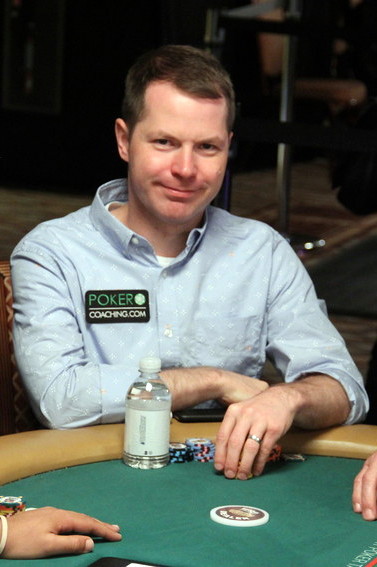






How To Double Your Poker Bankroll In Less Than Three WeeksBankroll Management: How Much Do You Actually Need To Play? |
|
|

Jonathan Little
I am often asked why most players fail at poker. The answer is simple… bad bankroll management.
Many novices think poker is a get-rich-quick scheme, but in reality, it is quite the opposite. You get rich in poker by taking it slowly and playing within your means. If you don’t have a bankroll, you can’t play. Even if you are the most skilled player in the world, if you have little to no money to your name, you won’t be able to play and make money unless you get very lucky.
On the other hand, if you are smart with your money and always keep a decently large bankroll in relation to the games you are playing, you will maximize your chance to win money indefinitely while also improving your poker skills.
When I first started playing poker 18 years ago, I played 25¢-50¢ limit hold’em. While I only had 100 big bets to my name ($50), I managed to grow my bankroll and slowly move up. I eventually learned the common knowledge that you need 300 big bets to play limit poker in order to have only a small chance of going broke, so I followed that guideline until I reached $15-$30.
Most people think it takes a long time to build a bankroll from scratch, but in reality, it does not take too long if you are willing to put in lots of hours at the table. Let’s look at the math.
Assuming you can play four tables at a time online, which is the minimum I suggest, you will be able to play around 250 hands per hour. If you win two big bets per 100 hands at limit hold’em, you will win five big bets per hour. If you have 300 big bets in your current game, that means you have 150 big bets at the next level. So, it will only take you around 30 hours to double your bankroll and move up. You can easily do that in a week if you are playing full time and remain disciplined.
When it comes to no-limit hold’em, which is by far the most popular poker variant, I suggest keeping at least 30 buy-ins for your current game, and ideally more. This assumes you are buying in for 100 big blinds. If you buy in for less than that, which I only recommend if you realize you are outmatched (which usually means you should not be playing in the first place), you will actually need a larger number of buy-ins because you will get all-in more often with a smaller advantage on average.
In no-limit hold’em, a good player can win around 10 big blinds per 100 hands when playing online. So, assuming you can play 250 hands per hour, you will win 25 big blinds per hour. Every four hours, you will win a buy-in, meaning it will take you around 100 hours to double your bankroll. If you play full-time, you could potentially double your bankroll in less than three weeks.
For multi-table tournaments, you should keep at least 100 buy-ins for your current level. There is much more variance in multi-table tournaments than most other forms of poker because you only win a significant amount when you cash in the top one percent of the field, which is tough to do. For sit-n-go tournaments, you should also keep at least 50 buy-ins.
Remember, the listed numbers are the minimum amount required! If you lose a few buy-ins playing no-limit hold’em, and no longer have 30 in your bankroll, then you have to drop down in stakes until you can afford to take another shot.
Ideally, if you plan on playing professionally, you should keep around two times the numbers suggested. If you’re playing in tough games where your win rate will be lower, you also should keep a larger bankroll. If you are playing in extremely high variance games, like 1,000-player tournaments or a volatile game like pot-limit Omaha, you will need an even larger bankroll.
To learn even more about bankroll management, check out my free Bankroll Bible at PokerCoaching.com. As long as you make a point to play a lot in games where you have an edge while keeping a proper bankroll, the money will flow in your direction. If you don’t, you are gambling.

 Jonathan Little is a two-time WPT champion with more than $7 million in live tournament earnings, best-selling author of 15 educational poker books, and 2019 GPI Poker Personality of the Year. If you want to increase your poker skills and learn to crush the games, check out his training site at PokerCoaching.com/cardplayer.
Jonathan Little is a two-time WPT champion with more than $7 million in live tournament earnings, best-selling author of 15 educational poker books, and 2019 GPI Poker Personality of the Year. If you want to increase your poker skills and learn to crush the games, check out his training site at PokerCoaching.com/cardplayer.
